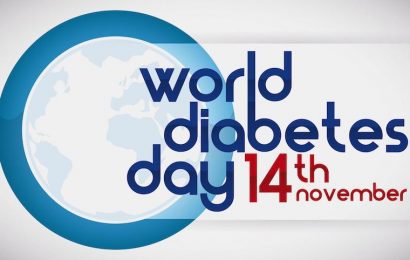Drinking alcohol has long been associated with a number of health benefits, in addition to its known risks (which can include addiction and abuse, as well as higher blood triglyceride levels in some people). As we noted here at Diabetes Flashpoints two years ago, moderate alcohol intake is associated with a lower risk of developing Type 2 diabetes that is independent of other lifestyle-related factors. And, according to a new study, alcohol consumption seems to have a general blood-glucose-lowering effect — with the greatest effect seen from drinking red wine.
The study, published earlier this month in the journal Clinical Nutrition, looked at 67 Spanish men with a high risk for cardiovascular problems. Researchers randomly assigned each man to drink either gin containing 30 grams of alcohol (equaling 100 milliliters, or roughly 3.4 ounces, of gin), red wine containing 30 grams of alcohol (equaling 272 milliliters, or roughly 9.2 ounces, of red wine), or the equivalent amount of dealcoholized red wine each day for four weeks. According to an article on the study at NutraIngredients.com, insulin resistance in both of the wine-drinking groups dropped by 22% to 30%, while it dropped by only 14% to 22% in the gin-drinking group. This indicates, of course, that most of the benefit in the wine-drinking group came from something other than alcohol — assumed to be the wine’s polyphenols (including resveratrol), chemicals associated with numerous health benefits including reduced inflammation and cancer resistance. One change was clearly seen only from alcohol consumption, however. Participants assigned to drink either regular red wine or gin saw increases in their HDL (high-density lipoprotein, or “good”cholesterol) level, while those in the dealcoholized wine group did not.
An individual’s choice to drink — and choice of drink — are usually based on a number of factors including habit and social influences, but health concerns can and often should also play a role in these decisions. Your doctor can be a good source of information regarding whether or not you should drink in the context of your triglyceride level and prediabetes or diabetes status.
What factors shape your decision to drink, or not to drink, alcohol? Does this study make you more eager to choose red wine over other alcoholic beverages? Do you often find it difficult to choose a “healthier” alcoholic beverage, as drinking is often a highly social activity in which choice may be limited? How much would you alter your current drinking practices (or lack thereof) if scientific evidence turned strongly for or against alcohol? Leave a comment below!




